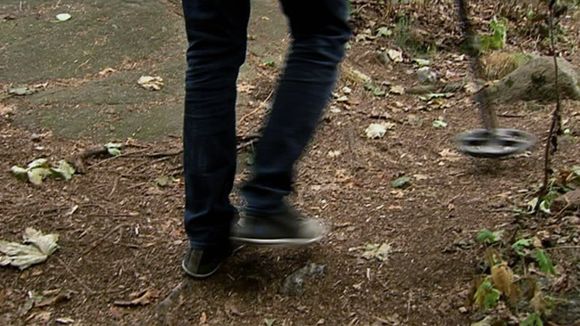Nighthawkers hitting more archaeological sites in Finland

Unauthorized excavations and thefts at historic and prehistoric sites are becoming a growing problem in Finland.
Professional archaeologists say information on sites and earlier finds should be restricted to make them less tempting targets. Officials disagree.
It is believed that the recent spate of illegal digging is mainly the work of “nighthawkers” – people with metal detectors who work illegally at night to remove artefacts from archaeological sites.
Over the past six years, Finland’s National Board of Antiquities has dealt with about 30 cases of illegal digging and the theft of artefacts from prehistoric and historic sites. So far this year, the Board of Antiquities has dealt with four serious cases. Many more, it is thought go unnoticed or unreported.
More metal detectors
The growing availability of powerful, but inexpensive metal detectors has boosted the hobby of detecting and of treasure hunting.
There are estimated to be 2,000 – 5,000 amateur users of metal detectors in the country. For the most part hobbyists stick to parks and beaches, with bottle caps and small coins making up the bulk of their finds.
Jens Lindgren of the national metal detectors’ association Suomen Metallinetsijät says that most hobbyists stick to the rules. He is concerned that nighthawkers will ruin the reputation of legitimate metal detectorists and their pastime.
“All abuse of this kind, sooner or later, means problems for the hobbyists. There has been a lot of talk among hobbyists that these nighthawkers are not local and speculation that the come in from, for example, the Baltic countries,” explains Lindgren.
Too much information
Professionals are seriously concerned. Teemu Mökkönen who chairs the Archaeological Society of Finland told Yle that access to details of sites and previous finds should be restricted. At the moment, access to all this information is openly available online in a registry maintained by National Board of Antiquities.
“Some Finnish and foreign metal detectorists exploit this information and the relevant legislation. If this situation continues as it is, access to information must be restricted. One alternative would for the Board of Antiquities to require the use of banking IDs or some other similar type of sign-in to access its registry, and then people could freely browse the information,” Mökkönen suggests.
The official line is that this information should be openly available as everyone has the right to all aspects of cultural heritage.
“We distribute information about the cultural environment because our citizens have the right to know about ancient sites and they have the right to be familiar with these sites,” says Matleena Haapala, a lawyer at the National Board of Antiquities
Stolen artefacts online?
Archaeologists and metal detecting hobbyists have come across objects put up for sale at online auction sites that they suspect have been illegally dug up from protected sites.
By law, any discovery dating back more than 100 years must be reported to the National Board of Antiquities which has first right of purchase. The Board has limited resources for examining and purchasing finds. Its budget this year to purchase artefacts brought in by the public is a mere 5,000 euros.
There is a danger of growing numbers of treasure hunters who decide to bypass official channels, and the law, and seek black market buyers in hopes of making big money off their finds. Lindgren has a few words intended to bring these dreamers back down to earth.
“This is no way to get rich. First you find a dozen bottle caps and then maybe there’ll be a ten cent coin in the dirt,” Lindgren laughs.
Related stories from around the North:
Canada: The discovery of an Arctic shipwreck, Radio Canada International
Finland: Heritage hunting in Finnish forests, Yle News
United States: Crews unearth military history on Alaska Glacier, Alaska Dispatch



